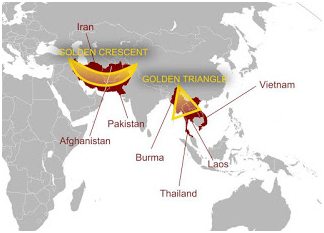Social Justice
Fighting Drug Addiction
- 26 Oct 2021
- 6 min read
Why in News
Recently, the Social Justice and Empowerment Ministry has recommended that the National Fund to Control Drug Abuse should be used to carry out de-addiction programmes, rather than just policing activities.
- A proposal to decriminalise possession of small quantities of drugs, as defined in the Narcotic Drugs and Psychotropic Substances (NDPS) Act, 1985, had also been sent to the Department of Revenue under the Finance Ministry.
- Once it is approved, persons caught with small quantities of drugs for personal use can be directed to rehab, instead of being prosecuted and sent to jail.
Key Points
- National Fund to Control Drug:
- The fund was created in accordance with a provision of the NDPS Act and had a nominal corpus of Rs. 23 crore.
- Under the NDPS Act, the sale proceeds of any property forfeited, grants made by any person and institution, and income from the investments of the fund, go towards the fund.
- The Act states that the fund would be used to combat illicit trafficking of narcotics, rehabilitating addicts, and preventing drug abuse.
- Drug Addiction in India:
- The menace of drug addiction has spread fast among the youth of India.
- India is sandwiched between two largest Opium producing regions of the world that is the Golden triangle on one side and the Golden crescent on other.

- The golden triangle area comprises Thailand, Myanmar, Vietnam and Laos.
- The golden crescent area includes Pakistan, Afghanistan and Iran.
- India is sandwiched between two largest Opium producing regions of the world that is the Golden triangle on one side and the Golden crescent on other.
- The menace of drug addiction has spread fast among the youth of India.
-
- According to the World Drug Report 2021, prescription drugs and their ingredients or 'precursors' are being increasingly diverted for recreational use in India--the largest manufacturer of generic drugs in the world.
- India is also linked to shipment of drugs sold on the 19 major darknet markets analysed over 2011-2020.
- According to the National Crime Records Bureau’s Crime in India 2020 report, a total of 59,806 cases were lodged under NDPS Act.
- According to the Social Justice Ministry and All India Institute of Medical Sciences (AIIMS) report on magnitude of substance use in 2019, there were:
- 3.1 crore cannabis users (of which 25 lakh were dependent users).
- 2.3 crore opioid users (of which 28 lakh were dependent users).
- According to the World Drug Report 2021, prescription drugs and their ingredients or 'precursors' are being increasingly diverted for recreational use in India--the largest manufacturer of generic drugs in the world.
- Other Related Initiatives:
- Narco-Coordination Centre: The Narco-Coordination Centre (NCORD) was constituted in November, 2016 and the scheme of “Financial Assistance to States for Narcotics Control” was revived.
- Seizure Information Management System: Narcotics Control Bureau has been provided funds for developing a new software i.e. Seizure Information Management System (SIMS) which will create a complete online database of drug offences and offenders.
- National Drug Abuse Survey: The government is also conducting a National Drug Abuse Survey to measure trends of drug abuse in India through the Ministry of Social Justice & Empowerment with the help of National Drug Dependence Treatment Centre of AIIMS.
- Project Sunrise: It was launched by the Ministry of Health and Family Welfare in 2016, to tackle the rising HIV prevalence in north-eastern states in India, especially among people injecting drugs.
- NDPS Act: It prohibits a person from producing, possessing, selling, purchasing, transporting, storing, and/or consuming any narcotic drug or psychotropic substance.
- The NDPS Act has since been amended thrice – in 1988, 2001 and 2014.
- The Act extends to the whole of India and it applies also to all Indian citizens outside India and to all persons on ships and aircraft registered in India.
- Nasha Mukt Bharat: Government has also announced the launch of the ‘Nasha Mukt Bharat’, or Drug-Free India Campaign which focuses on community outreach programs.
- International Treaties and Conventions to Combat Drug Menace:
- India is signatory of the following International treaties and conventions to combat the menace of Drug Abuse:
- United Nations (UN) Convention on Narcotic Drugs (1961)
- UN Convention on Psychotropic Substances (1971).
- UN Convention against Illicit Traffic in Narcotic Drugs and Psychotropic Substances (1988)
- UN Convention against Transnational Organized Crime (UNTOC) 2000.
- India is signatory of the following International treaties and conventions to combat the menace of Drug Abuse:
Way Forward
- The stigma associated with drug taking needs to be reduced. Society needs to understand that drug-addicts are victims and not criminals.
- Certain crop drugs which have more than 50% alcohol and opioids need to be contained. Strict action is required from police officers and the excise and narcotics department to curb the problem of drug menace in the country.
- Radical political decisions like one of alcohol prohibition in Bihar may be another solution. When people do not exercise self-control, a state has to step in, as part of the Directive Principles of State Policy (Article 47).
- Education curriculum should include chapters on drug addiction, its impact and also on de-addiction. Proper Counselling is another alternative.




